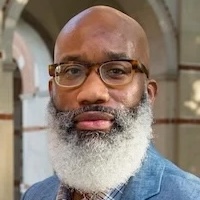 A new study led by Tony Brown, distinguished professor of sociology at Rice University, has found the characteristics of people who support Black nationalism have significantly changed since the 1980s, with the belief system now reaching a wider audience than previously thought.
A new study led by Tony Brown, distinguished professor of sociology at Rice University, has found the characteristics of people who support Black nationalism have significantly changed since the 1980s, with the belief system now reaching a wider audience than previously thought.
According to the study, “Black nationalism is an ideology that advocates for cultural, economic, political, and social separatism, and/or community autonomy and self-reliance as survival tactics.” The authors were interested in investigating the status of Black nationalism in today’s society due to a popular “opinion that the belief system is an anachronism” from the 20th century.
Through analyzing the data from Black adult participants on the Outlook on Life Surveys from the University of Michigan, the authors determined what personal characteristics correlated with Black nationalist tendencies among Black Americans today. Historically, supporters of Black nationalism were more likely to be men, younger in age, and from a lower income or educational background. The new study found none of these factors predicted Black nationalism. Instead, the only consistent characteristics associated with Black nationalist tendencies were White antipathy and common fate, a feeling of Black solidarity and unity.
The authors believe the recent changes in Black nationalism predictors are due to historical events that have occurred since the 1980s, such as widespread disparities in the criminal justice and healthcare systems, gentrification, underfunded schools in Black communities, police brutality, environmental disasters like the Flint, Michigan, water crisis, and conflicting viewpoints on Barak Obama’s presidency.
“White supremacy makes Black nationalism durable and attractive; consequently, certain Blacks will always endorse it,” write the authors. They urge policymakers and government leaders to use their findings to create initiatives that combat inequality specifically based on what the Black community currently feels, and include Black Americans in the process to address White supremacy.

